
The professor of neurology at Cleveland Clinic and president of ACTRIMS noted his excitement for this year’s Forum, which will feature presentations on a variety of topics in the field of multiple sclerosis. [WATCH TIME: 2 minutes]

The professor of neurology at Cleveland Clinic and president of ACTRIMS noted his excitement for this year’s Forum, which will feature presentations on a variety of topics in the field of multiple sclerosis. [WATCH TIME: 2 minutes]

After 12 months of treatment, the 2 disease-modifying therapies were comparable in efficacy, with less treatment switching and discontinuation in cladribine-treated patients.

Konstantin Karmazin, MD, outlined the potential future initiatives for Prime PD, including incorporating advanced practice providers into the model.

Despite the majority of program directors reporting the importance of training in cerebral palsy, they also felt that residents were not very well prepared to manage the condition

The Distinguished Professor Emerita at Indiana University School of Nursing spoke on what the task force discovered in a review of literature on stigma from 1985 through 2019. [WATCH TIME: 7 minutes]

After Rapid LVO installation, CTA to groin puncture time decreased and 90-day clinical outcomes, expressed using modified Rankin Scale, were improved.
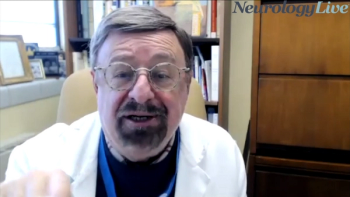
The director of Geriatric Psychiatry at the St Louis University School of Medicine discussed the need to improve awareness of the signs of psychiatric-related symptoms and to eliminate the stigmas associated with them. [WATCH TIME: 3 minutes]

The assistant director of the Allegheny Headache Center provided context on a recently created headache registry and the need to prioritize treatment outcomes that matter to patients.

The study found the approach could be utilized in the intensive care unit without adverse effects on neurological or functional outcomes.

Konstantin Karmazin, MD, clinical neurologist and chief medical officer of Prime PD, outlined the goals of the platform, as well as the variety of fitness programs offered for subscribers.

The Distinguished Professor Emerita at Indiana University School of Nursing spoke on the prevalence of stigma in the field of epilepsy and how it can affect the daily life of patients. [WATCH TIME: 4 minutes]

Investigators concluded that despite the linear relation between plasma concentration and dose, monitoring of fenfluramine is clinically relevant due to its high interpatient pharmacokinetic variability.

The vascular neurologist at Allegheny Health Network provided an overview of the RapidAI and how it is evolving the way clinicians manage and treat patients who present with stroke. [WATCH TIME: 4 minutes]
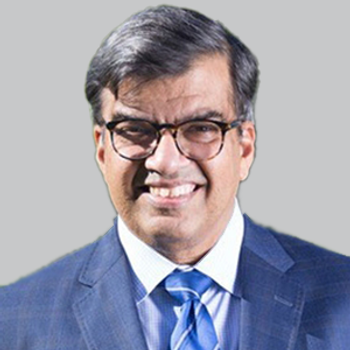
Tahseen Mozaffar, MD, FAAN, spoke on recently reported positive interim safety data from the phase 1/2 FORTIS study, noting that the treatment was thus far safe and well-tolerated in patients.

When adding Nerivio’s Guided Imagery, Education and Relaxation, or GIER, behavioral intervention, 79.4% of responders achieved consistent pain relief compared with 56.8% of those treated solely with the REN device.

The resubmission includes additional data from the phase 2 Study -019 and the pivotal phase 3 HARMONY study, which showed a significant 2.8-fold reduction in the risk of relapse of psychosis.

Alberto Ascherio, MD, DrPH, and Lawrence Steinman, MD, join NeurologyLive in a conversation about the clinical and research implications of a causative relationship between Epstein-Barr virus and multiple sclerosis.
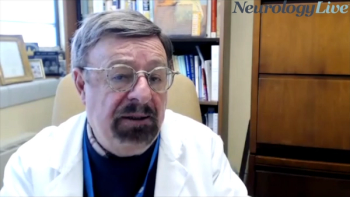
The Samuel W. Fordyce professor and director of Geriatric Psychiatry at the St Louis University School of Medicine discussed the critical roles specialists and caregivers during telehealth visits in long-term care settings. [WATCH TIME: 4 minutes]

ACTRIMS president Jeffrey Cohen, MD, offered insight into what’s to come from the upcoming Americas Committee for Treatment and Research in Multiple Sclerosis Annual Forum 2022.
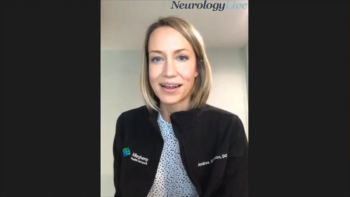
The assistant director of the Allegheny Headache Center provided insight on how the center utilizes its headache registry to construct treatment plans, along with identifying questions that still need answers. [WATCH TIME: 3 minutes]

Here's what is coming soon to NeurologyLive®.

Following the publication of 2 reviews from the International League Against Epilepsy Task Force on Stigma in Epilepsy, Joan K. Austin, PhD, RN, FAAN, spoke on the need to better understand this issue and address it in clinical practice.

Although pain is a known problem for children and adolescents with the disease, not much is understood about pain in adults with CP.
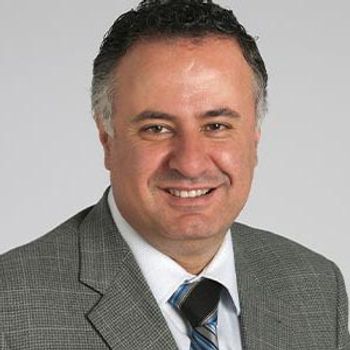
Imad Najm, MD, provided commentary on the long-term efforts needed to understand the origins of neurological brain diseases and his desire to copy the success of the cardiovascular field.

In contrast to general turning measures and the Scale for the Assessment and Rating of Ataxia score, lateral velocity change allowed detecting longitudinal changes in 1-year follow-up recordings.

Neurology News Network for the week ending February 19, 2022. [WATCH TIME: 3 minutes]
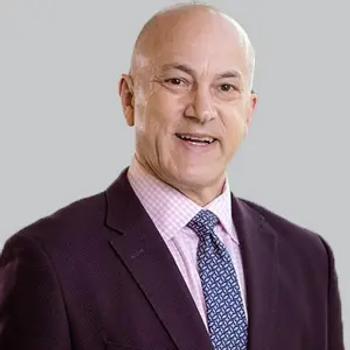
Findings from a new post hoc analysis of data from the randomized-controlled period of the N-MOmentum phase 2/3 pivotal trial (NCT02200770), suggest the Horizon agent is effective in NMOSD.

Take 5 minutes to catch up on NeurologyLive®'s highlights from the week ending February 18, 2022.

The director of the Multiple Sclerosis and Neuromyelitis Optica Unit at Massachusetts General Hospital commented on presentations given at the recent event, as well as key takeaways from his own discussion on novel imaging approaches in multiple sclerosis. [WATCH TIME: 2 minutes]

Joan K. Austin, PhD, RN, FAAN, commented on this issue within the field, discussing key findings from 2 recent reviews completed by the International League Against Epilepsy Task Force on Stigma in Epilepsy.